- Overview
- Trip Outline
- Trip Includes
- Trip Excludes
- Gallery
- Reviews
- Booking
- FAQ
Cape Coast Castle is a UNESCO World Heritage Site located in the coastal town of Cape Coast, Ghana. It serves as a poignant reminder of the transatlantic slave trade and the harrowing experiences endured by millions of Africans who were forcibly transported to the Americas and the Caribbean.
History:
- Construction: The castle was built by the Portuguese in the 15th century and later captured by the Dutch and then the British.
- Slavery Hub: During the 17th and 18th centuries, Cape Coast Castle became a major hub of the slave trade. Thousands of enslaved Africans were held captive within its walls before being shipped across the Atlantic.
- Legacy: After the abolition of slavery in the 19th century, the castle served as a fort and a prison. Today, it stands as a powerful symbol of Ghana's history and a testament to the resilience of the African people.
Features:
- The "Door of No Return": This infamous doorway is where enslaved Africans were marched onto ships bound for the Americas and the Caribbean.
- The Dungeons: Explore the dark and cramped dungeons where enslaved Africans were held captive.
- The Courtyard: See the courtyard where enslaved Africans were assembled before being transported.
- The Slave Chapel: Learn about the spiritual beliefs of the enslaved people and the chapel where they were baptized before departure.
Visiting Cape Coast Castle:
- Guided Tours: Guided tours offer a comprehensive understanding of the castle's history and the experiences of the enslaved people.
- Interactive Exhibits: The castle features interactive exhibits that bring the history of the slave trade to life.
- Respectful Experience: Visitors are encouraged to approach the castle with respect and sensitivity to the historical significance of the site.
Cape Coast Castle is a powerful and moving experience that offers a glimpse into one of the darkest periods in human history. It serves as a reminder of the resilience of the African people and the ongoing struggle for justice and equality.
Embark on a captivating journey through the rich history and cultural heritage of Cape Coast, Ghana. This coastal city, once a bustling hub of the transatlantic slave trade, now stands as a powerful symbol of resilience and cultural heritage.
Itineraries
Christmas Tour Itinerary
Date : December 25, 2024
Wednesday, 25th December 2024 - Wednesday, 8th January 2025
Arrival Day
Date : December 25, 2024
Arrive at Kotoka International Airport, Accra. Transfer to 4-star accommodation. Settle in with welcome drinks and a catered local dinner.
Day 1
Date : December 26, 2024
Local Area Orientation. Visit Oxford Street (OSU) and surrounding neighborhood markets.
Day 2
Date : December 27, 2024
1st Day of Afrofuture Festival. Enjoy the Arts, Fashion, Culture, and Music Extravaganza.
Day 3
Date : December 28, 2024
2nd and Final day of Afrofuture Festival celebrations.
Day 4
Date : December 29, 2024
Rest and recalibrate.
Day 5
Early morning start. Visit Aburi and surrounding areas with Group Photoshoot. Optional Spa and Relaxation Days at Royal Senchi Resort/Bridge View Resort @Akosombo, Volta Region. Return to Accra for New Year’s Eve Preparation & Celebration
Days 6 & 7
31st December 2024 - 1st January 2025
Day 8
Date : January 2, 2025
Return to Accra.
Days 9 & 10
Date : January 3, 2025
= 3rd - 4th January 2025: Early morning drive and Excursion to Cape Coast for historical tour of the slave castles and local attractions, plus zip wire and rainforest canopy trail at Kakum National Park. Return to Accra.
Day 11 & 12
Date : January 5, 2025
5th - 6th January 2025: Day trip and overnight stay @ Aqua Safari, Ada.
Day 13
Date : January 7, 2025
Back to Accra - rest and recalibrate. Local area malls/Accra Beach Day. Pack luggage.
Departure Day
Breakfast then late check out. Local Dinner before heading to Kotoka International Airport, Accra
Package Inclusions:
- Accommodation: 4-star accommodation in Accra for the duration of the trip.
- Transfers: Airport transfers upon arrival and departure.
- Guided Tours: Guided tours of Oxford Street, Aburi, Cape Coast, and Kakum National Park.
- Festival Tickets: Tickets to the Afrofuture Festival.
- Entrance Fees: Entrance fees to attractions and activities included in the itinerary.
- Local Dinner: A catered local dinner on the arrival day.
- Breakfast: Daily breakfast at the hotel.
- Transportation: Transportation for all activities and excursions.
Package Exclusions:
- International Flights: Flights to and from Ghana.
- Personal Expenses: Expenses such as visa fees, souvenirs, personal items, and optional activities.
- Meals: Meals are not specifically mentioned in the itinerary.
- Tips: Tips for guides, drivers, and hotel staff.
- Travel Insurance: Travel insurance is highly recommended but not included in the package.
Cape Coast Castle was built in the 16th century by the Portuguese.
The Portuguese built Cape Coast Castle, but it later came under the control of the Dutch and then the British.
Cape Coast Castle served as a trading post and a fort, but it is primarily known for its role as a hub of the transatlantic slave trade.
Enslaved Africans were often held at Cape Coast Castle for several weeks or months before being loaded onto ships bound for the Americas and the Caribbean.
The "Door of No Return" is a symbolic doorway through which enslaved Africans were marched onto the ships that would transport them away from their homeland.
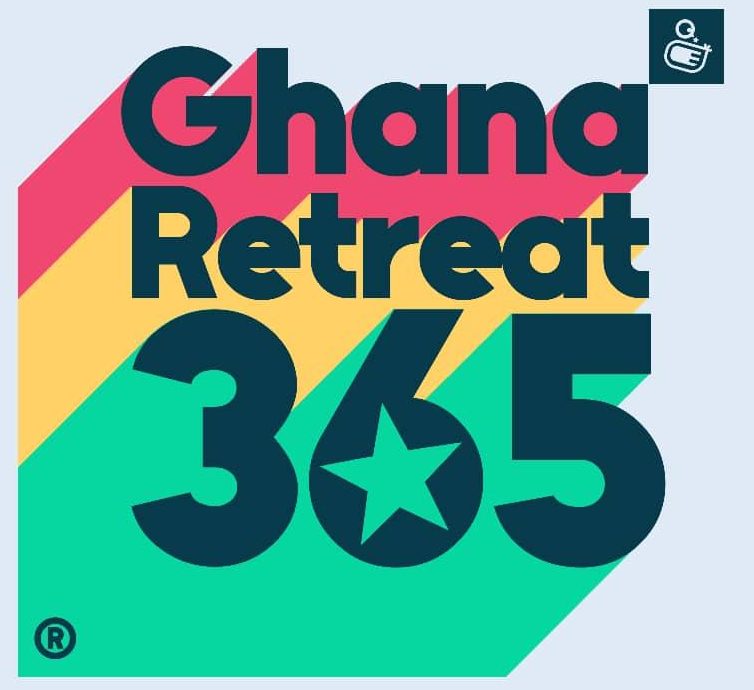
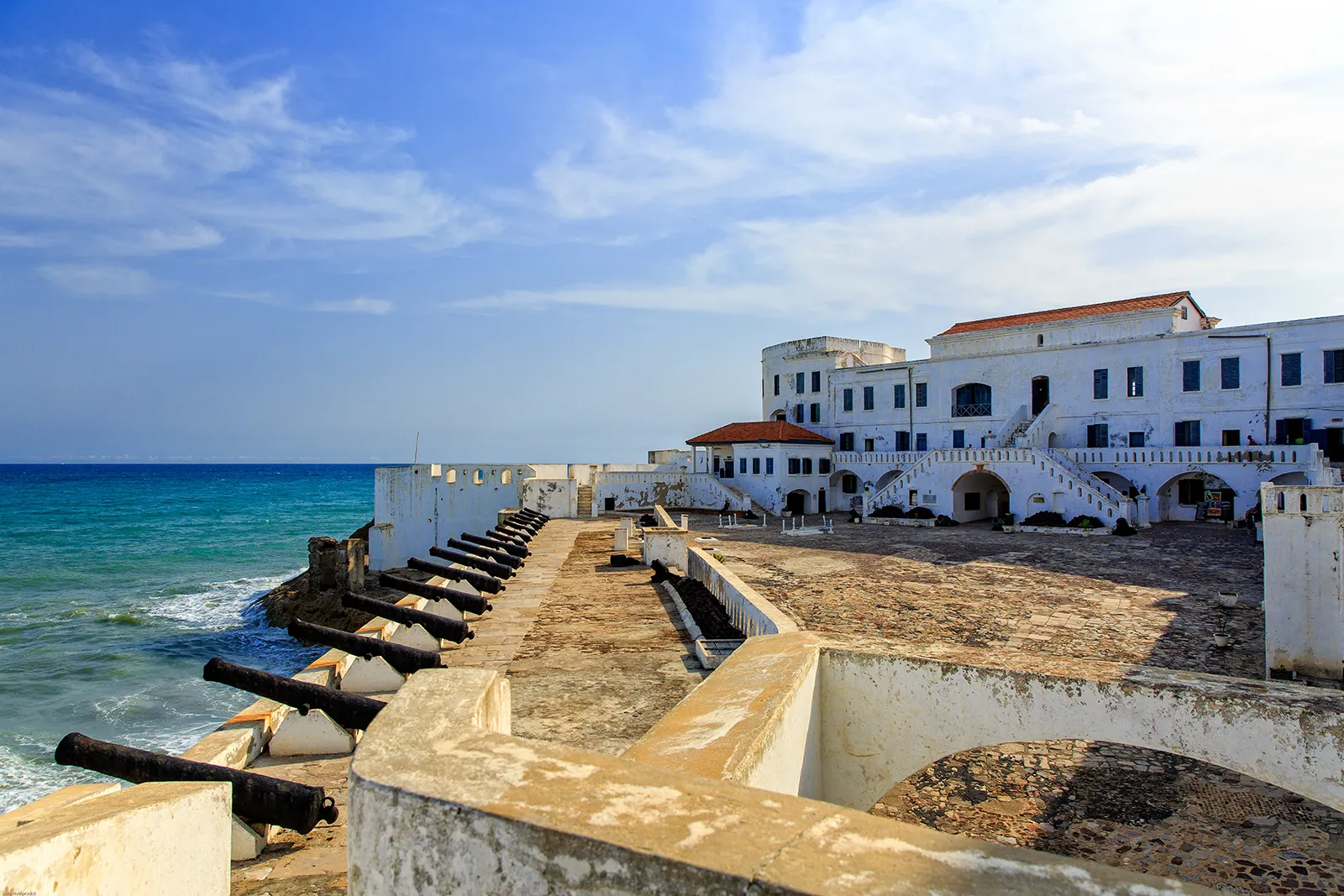
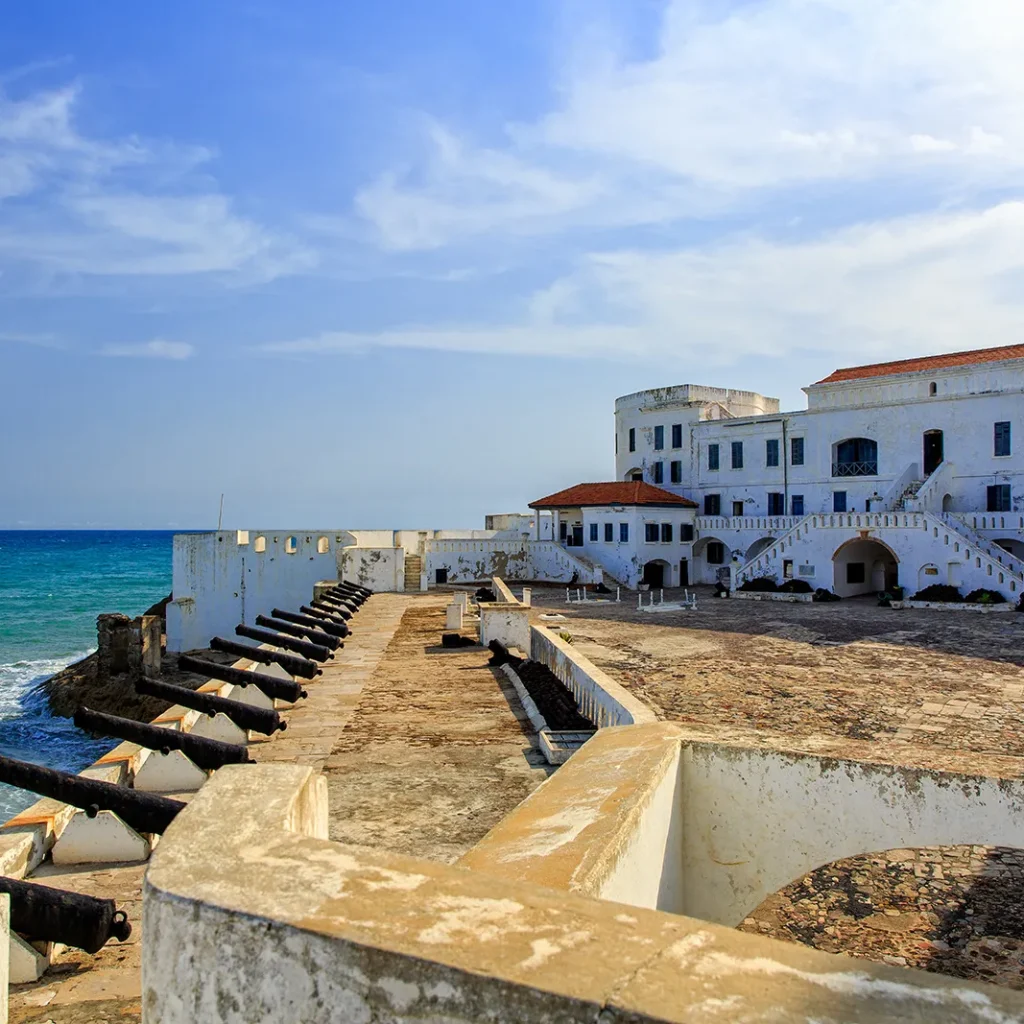
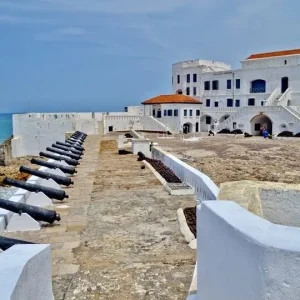
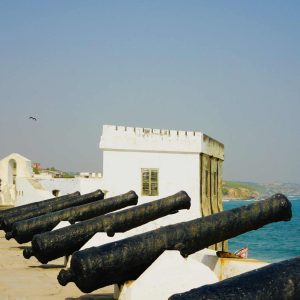
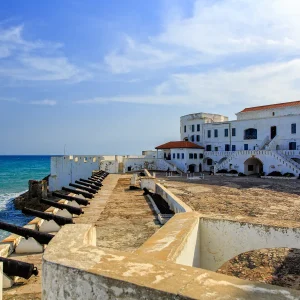

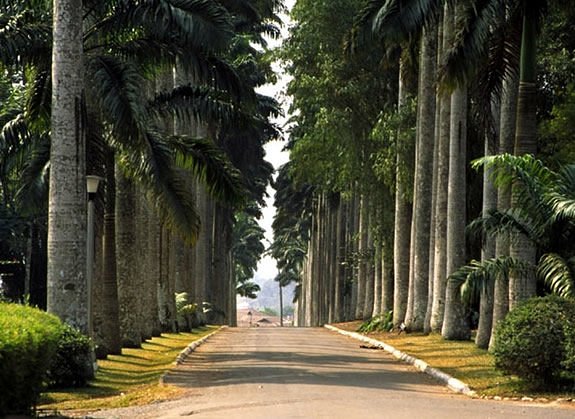

There are no reviews yet.